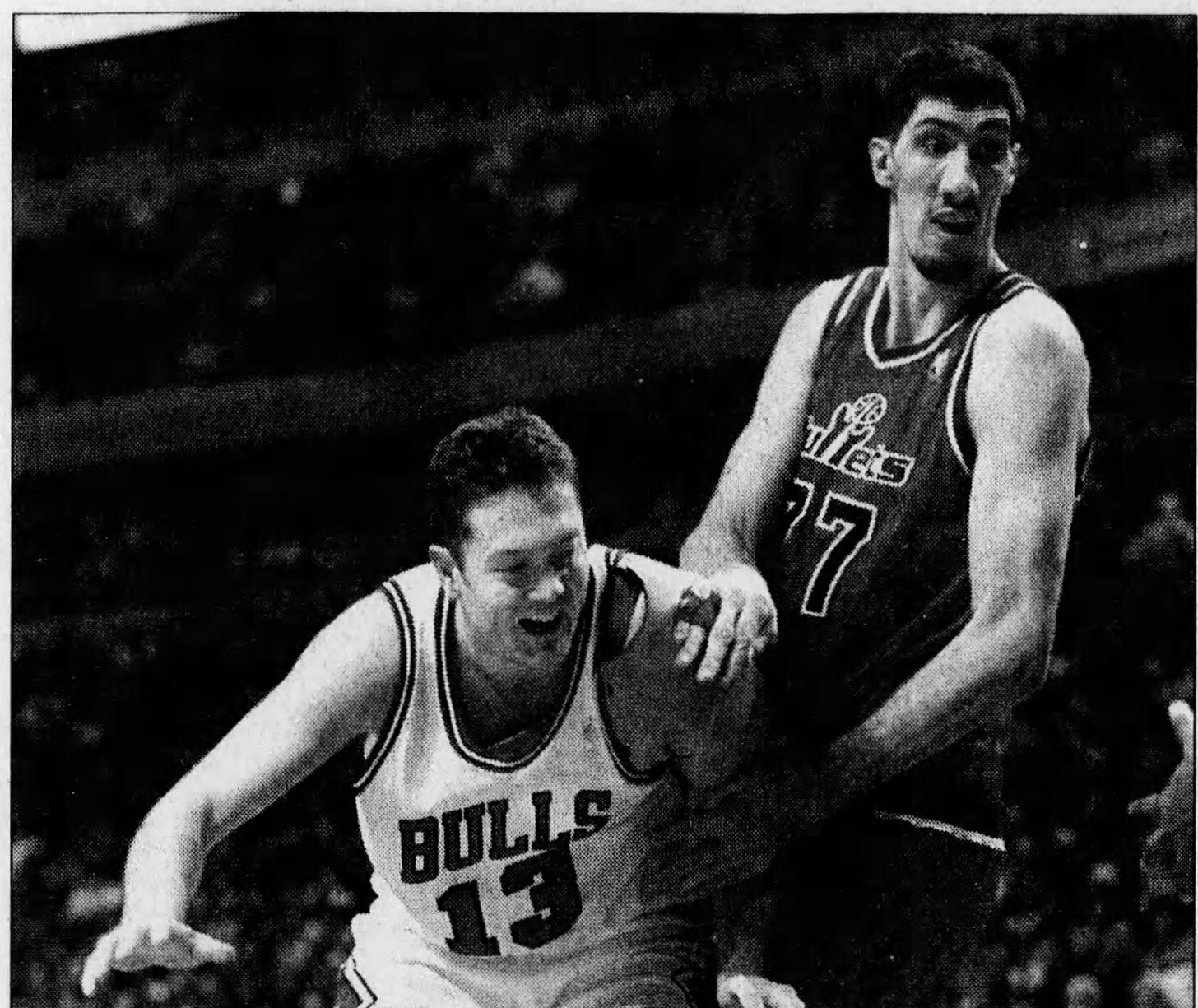"If I was commissioner..." MJ, Toni, Luc and Joe Kleine sound off
Anyone remember the NBA ref tax scandal?

“If you were the Commissioner of the NBA, what is the first thing you would do?”
That was the question posed at the start of the 1997-98 season to the 13 Bulls veterans. Their responses fell into six main cat…


